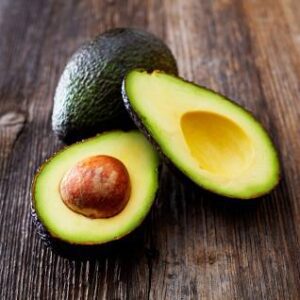The Truth About Least Healthy Vegetables: Are They That Bad for You?
Least Healthy Vegetables: Exploring the Controversy
Vegetables are often touted as the epitome of health, but are there any that we should be cautious about? In this article, we delve into the world of the least healthy vegetables. Are they truly detrimental to our well-being, or is it just a matter of perception? Let’s separate fact from fiction and shed some light on this intriguing topic.
What Makes a Vegetable Least Healthy?
Before we dive into the specifics, it’s important to understand the criteria for categorizing a vegetable as least healthy. Generally, these vegetables are known for their higher levels of calories, unhealthy fats, or carbohydrates compared to their counterparts. However, it’s essential to note that moderation is key to maintaining a balanced diet. Even the least healthy vegetables can be enjoyed as part of a diverse and nutritious eating plan.
The Notorious Culprits: Least Healthy Vegetables Unveiled
1. Potatoes: The Unassuming Enemy

Potatoes, a dietary staple for many, have garnered quite a reputation when it comes to their health implications. While they are a source of essential nutrients like vitamin C and potassium, they are also high in starch and can lead to blood sugar spikes if consumed in excess. Opt for healthier cooking methods like baking or boiling instead of frying to enjoy potatoes without compromising your health.
2. Sweet Corn: A Sweet Trap

Sweet corn, often enjoyed during barbecues and summer picnics, maybe deceivingly unhealthy. While it does contain dietary fiber and vitamins, it is also relatively high in carbohydrates. Moderation is key when savoring this summer treat, as excessive consumption can contribute to weight gain and blood sugar imbalances.
3. Avocado: The Paradoxical Fruit

Avocado often praised for its healthy fats and creamy texture, finds itself on the list of least healthy vegetables due to its high-calorie content. While the monounsaturated fats in avocados are beneficial, they should be consumed in moderation, especially if weight management is a concern.
4. Peas: Tiny But Tricky

Peas, those small green gems often found in soups and stir-fries, can be a surprising addition to the least healthy vegetable category. Although they provide dietary fiber and some essential nutrients, they also contain more carbohydrates than other non-starchy vegetables. Monitoring portion sizes can help you enjoy the benefits of peas without going overboard on carbohydrates.
5. Canned Vegetables: Convenience vs. Nutrition

Canned vegetables, often chosen for their convenience, may not always be the healthiest option. While they can provide some nutritional value, the canning process can result in a loss of certain vitamins and an increase in sodium content. Opting for fresh or frozen vegetables is generally a better choice when aiming for a balanced diet.
6. Beets: A Sweet Dilemma

Beets, known for their vibrant color and earthy flavor, can be a double-edged sword when it comes to health. While they contain beneficial antioxidants and essential nutrients like folate, they are also relatively high in natural sugars. Including beets in moderation can be part of a healthy diet, but excessive consumption may not be ideal for those watching their sugar intake.
Frequently Asked Questions about Least Healthy Vegetables
1. Are the least healthy vegetables completely devoid of nutritional value?
No, even the least healthy vegetables have some nutritional value. They still provide essential vitamins, minerals, and dietary fiber. However, their higher calorie, fat, or carbohydrate content may require moderation in consumption.
2. Can I still enjoy the least healthy vegetables as part of a healthy diet?
Absolutely! The key is moderation. Incorporating a variety of vegetables, including the least healthy ones, into your diet can provide a range of nutrients. Balancing portion sizes and incorporating them into a well-rounded meal plan is essential.
3. Should I avoid the least healthy vegetables altogether?
There’s no need to completely avoid the least healthy vegetables. They can be enjoyed in moderation, especially when paired with healthier cooking methods and balanced with other nutritious foods.
4. Are there any benefits to eating the least healthy vegetables?
Yes, even the least healthy vegetables can offer benefits. They can provide essential nutrients, contribute to dietary diversity, and add flavor and texture to meals. Remember, it’s all about balance and moderation.
5. Can the least healthy vegetables contribute to weight gain?
Excessive consumption of the least healthy vegetables, particularly those high in starch or unhealthy fats, can contribute to weight gain. Monitoring portion sizes and incorporating them into a well-balanced meal plan is crucial.
6. Are there healthier alternatives to the least healthy vegetables?
If you’re looking for healthier alternatives, there are plenty of options available. For example, swapping regular potatoes for sweet potatoes can provide more nutrients and a lower glycemic index. Experimenting with different vegetables can help you discover nutritious alternatives that suit your taste preferences.
In Conclusion
While some vegetables may be labeled as the least healthy, it’s important to approach the topic with nuance. Moderation, portion control, and a diverse eating plan are key to enjoying the benefits of all vegetables, including the ones with higher calorie, fat, or carbohydrate content. Remember, no vegetable is inherently bad for you when consumed in moderation. So go ahead and enjoy your favorite vegetables while keeping a balanced diet in mind!
